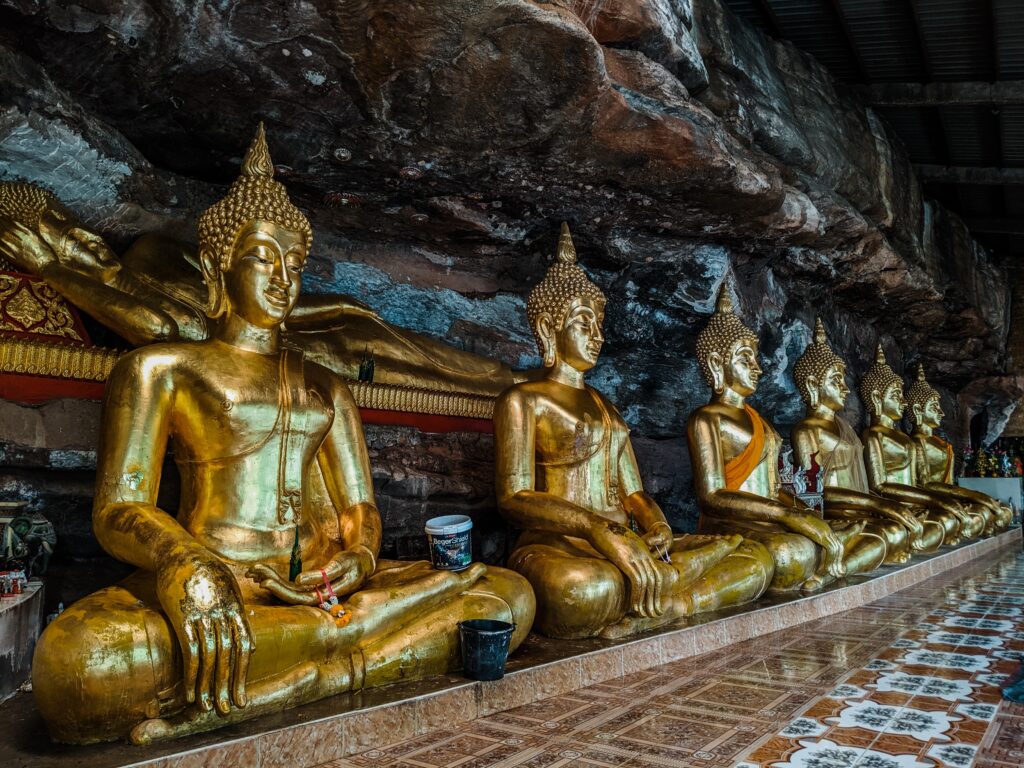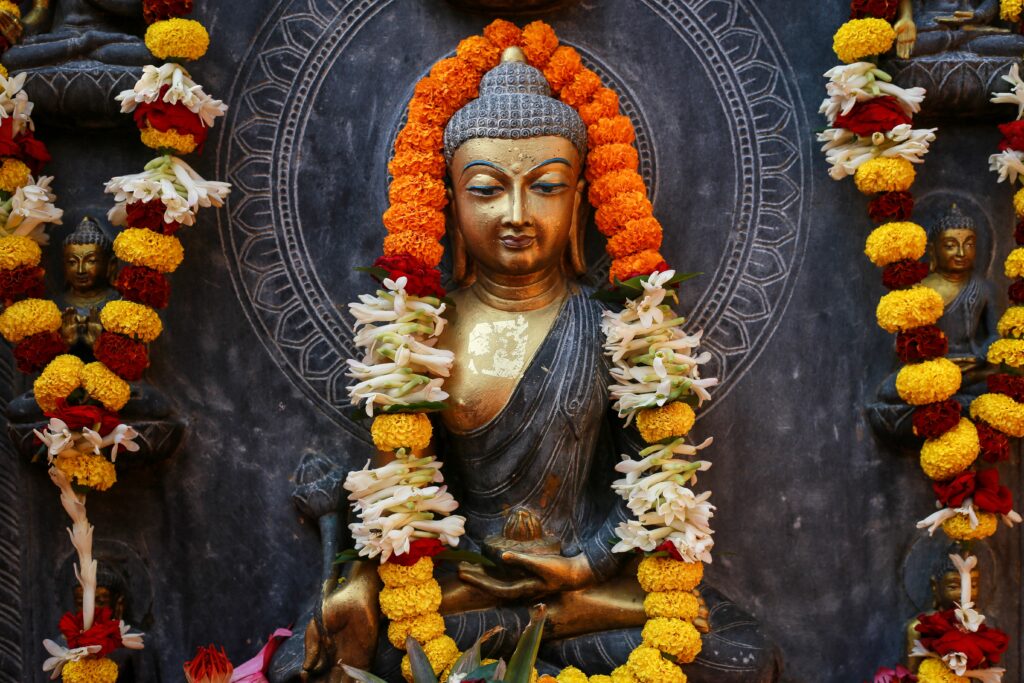Buddhism is the path of the middle way. The Buddha walked away from a life of material luxury to find the answer to the question of human suffering. He then took part in strict austerities. But it was only when he accepted milk from a milkmaid that he was finally able to sit down under the Bodhi tree and attain enlightenment.
Thus, Buddhism rejects the extremes of materialism and austerities and is the path of the middle way between extremes.
Most Buddhists I know consider themselves to be on the political left. They see the left as being the side that represents compassion, fairness and equality and they consider these to be Buddhist values. Some see the right as being selfish and individualistic and of putting the economy above people.
I’d like to suggest that Buddhists can find Buddhist principles on both sides of the political aisle and must walk the middle way between them since that is our path.
Buddhism posits that we suffer because we are fundamentally ignorant of the way things exist. As such, we must develop wisdom in order to cut through our ignorance. We each suffer because we have created negative karma, of which we now experience the results. We are each responsible for creating the karma that causes this suffering and the only person who can reduce our suffering is ourselves. The only person who can prevent us from creating and experiencing more negative karma in the future is ourselves. Not even the Buddha or the Dalai Lama can save us, they can only guide us. Therefore, we each must take responsibility for the karma we have created and do all we can to minimise the harm we do to ourselves and others to stop creating more suffering in the world. This is the teaching of personal responsibility. It is more commonly spoken by those on the political right who want each person to be responsible for their own lives.
In Buddhism, we then recognise that all of us are in this terrible predicament – suffering of our own making. Therefore, we don’t go about blaming others for their suffering. Rather, we know we are all in the same boat and so we feel compassion for everyone, even those who appear to have happy lives, because we know that they too have created terrible karma in past lives that mean their future lives may not be quite so rosy as the one they currently live.
All of us have created the heaviest of negative karmas and could experience their results at any time. Therefore, there is no superiority, but only compassion for those experiencing the results right now. We recognise that each person created the negative karma to experience their suffering result and at the same time we wish that they might be free of that suffering, and if we are on the Bodhisattva path we want to do what we can to help relive that suffering.
The political left encourage us to recognise that may people are born into and experience difficult circumstances and want us to assist to remove any barriers to achieving success that are in their way. The two sides come together in that we must try to provide assistance to those who require it and, at the same time, we know that each individual must be the one to make use of the assistance provided. No-one else can do it for them. You can lead a horse to water but you cannot make it drink. Equally, any good therapist knows that therapy is useless unless the person wants to change.
The left can provide all the assistance it wants but if a person is still engaging in destructive behaviours, they will not be able to make use of it.
The right hand of compassion sits in the left hand of wisdom in our meditation posture, and the two are seen as the two wings of the bird – it cannot fly without both wings – and our practice will not lead us closer to enlightenment if we only have one wing. Without wisdom we are doomed to give the alcoholic more booze, and without compassion we are doomed to leave him sleeping in the street.
At this time of huge division between the left and the right, I believe we Buddhists must attempt to stand in the middle ground, avoiding the extremes in both directions. If we believe the issue is ‘over there’ on the ‘other side’ then that itself is the problem.
Other people do not vote against their own best interests. They vote based on what they know and understand. We can come to understand each other, but not if we hate each other. If we stand the middle ground, in the current climate, we risk being hated for it. But we also hold a space where real dialogue between both sides can be had, and we open up possibility for there to be a middle way between the two sides. For there is truth on both sides.
As Buddhists, we can recognise that there is wisdom on both sides without falling into the trap of aligning too closely with either, for ultimately it is not which one is ‘right’ that will determine how much we suffer, but how closely we identify with either one. The more we consider ourselves ‘liberal’ or ‘conservative’ the more we will suffer as we will be pulled this way and that in the rollercoaster of politics.
Seeing the good in the other, and moving closer and closer to the middle, aligning less and less with the identity will minimise our own suffering and by avoiding extremes we will avoid causing harm to others too.



